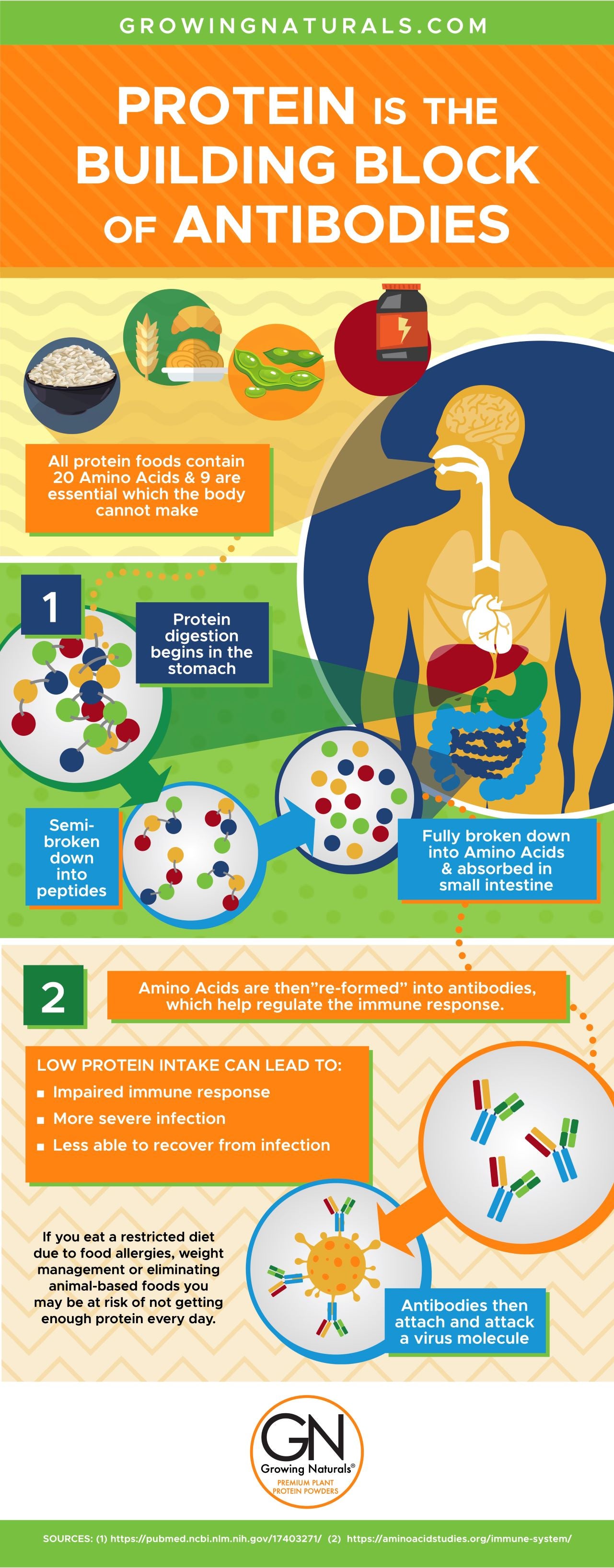
Did you know that protein is the building block of antibodies? All protein foods contain 20 amino acids and 9 of them are essential which the body cannot make. This is why protein is considered an essential nutrient.
When foods containing protein are eaten, the body gets amino acids "out" through the process of digestion. Protein digestion begins in the stomach. Stomach acids help partially break protein down into peptides (small chains of 2 to 3 amino acids). Protein is fully digested and broken into individual amino acids in the small intestine. This is also where amino acids are absorbed into the blood stream to be used as the building blocks for new skin, hair, nails, antibodies and more!
Antibodies are the substances your body makes to help fight off harmful substances like bacteria, fungi, and viruses.
Not only does protein help make antibodies, but three specific amino acids play a direct role in the immune response:
- Glutamine is a conditionally essential amino acid which supports the creation and multiplication of lymphocytes (a type of antibody) and the production of cell-signaling cytokines.
- Arginine is a conditionally essential amino acid which supports the creation, multiplication and optimal function of T cells (a type of white blood cell)
- Cystine is an essential amino acid which is needed for T cell activation and proliferation
This is why it's so important to consume enough protein each day, especially during cold and flu season.
Studies have shown a low protein intake can ultimately lead to an impaired immune response, more severe infection rates and a lowered ability to recover from infections.
If you have a restricted diet as a result of food allergies, diets or avoiding animal-based foods, you may be at risk of not getting enough protein each day. Check out our Protein Calculator to help figure out how much daily protein you need and whether or not your hitting that goal.
